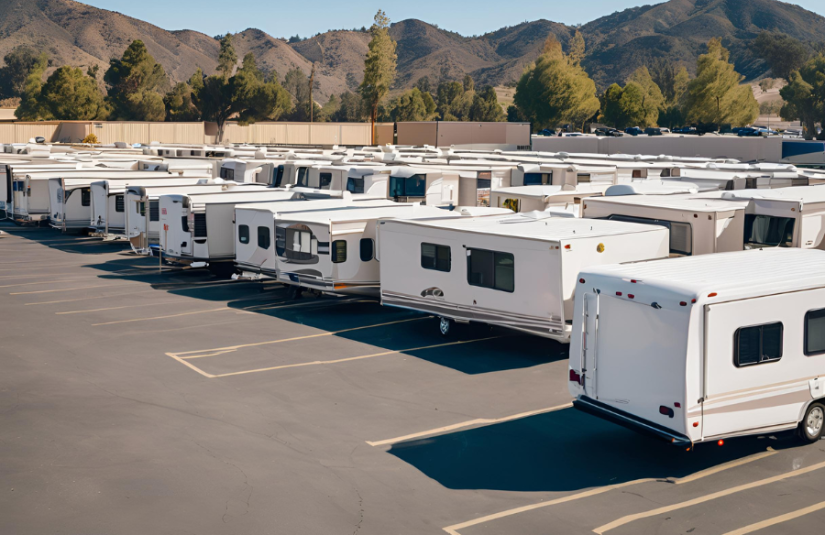Adapting to California’s 2025 Motorhome Regulations: How Self-Storage Can Help
New Motorhome Regulations In California
By the year 2025, in California, the new Advanced Clean Trucks (ACT) regulation is set to bring about changes in the realm of homes and motorhomes. Under this regulation, manufacturers of medium and heavy duty vehicles are required to ramp up the production of zero emission vehicles (commonly known as ZEVs). This development will have an impact on motorhome manufacturing as companies will no longer provide internal combustion engine (ICE) chassis for the California market. The absence of zero emission vehicle options has resulted in a pause in fresh motorhome purchases within the state starting from that particular year onwards. Although these rules are intended to lower emissions levels, they present difficulties for individuals who possess or depend on motorhomes. Vehicles in use that do not comply with zero-emission vehicle standards could encounter challenges related to operation and registration as time progresses. This adjustment affects not only acquisitions but also the ongoing upkeep and storage of older models, particularly as repair components compatible with internal combustion engines become harder to find.
Effects Of Regulations and New Requirements
The rules intended to decrease greenhouse gas emissions have caused worries within the RV sector. With no electric vehicle options for motorhomes in sight, dealerships and manufacturers are preparing for stock levels and decreased business. The scarcity of fuel motorhomes may result in increased interest and costs for owned models, especially those meeting California's registration criteria, like those exceeding 7,500 miles traveled. The task becomes more complicated as these modifications affect Class B, C, and A motorhomes as well; those equipped with diesel engines that adhere to the weight and emission restrictions established by the ACT laws. Those owning model motorhomes won't feel the impact of these alterations. This presents a chance for them to safeguard their assets. While manufacturers and authorities in the motorhome industry are still discussing how zero emission vehicle regulations will play out, it's up to owners to adjust to these shifts in advance. Using self storage facilities can help prolong the lifespan of your existing motorhomes and make sure you are following regulations, all while giving you the flexibility to make enhancements or repairs as needed.
Storing Motorhomes and RVs To Save Money
Given the growing number of regulations in place today and the importance of preserving homes for their owners' sake is becoming increasingly evident to many individuals nowadays. For those looking to safeguard their vehicles when they are not being used self storage facilities stand out as a cost efficient option. By utilizing storage units, mobile homes can be shielded from detrimental elements like weather related damages, acts of vandalism, and theft. This not only helps in maintaining compliance with parking and zoning regulations but also ensures the safety and security of these possessions. Moreover, there have been discussions within the RV industry about solutions such as developing chassis that are compatible with Zero Emission Vehicles ( ZEVs ). However, it's important to note that these advancements may require years before they are readily available in the market. The new motorhome regulations, in California for 2025, represent a change for the industry ahead of us all! It's great to see efforts to cut emissions. It brings up some challenges when it comes to getting and owning a motorhome right now that we can't overlook. For owners there keeping their beloved vehicles in top shape is a big deal, and finding ways to store them safely is a crucial solution that's within reach and makes sense. As the industry moves forward and changes take place. Being creative and resourceful will be essential to making sure that those who love hitting the road in their motorhomes can keep living out their adventures as before. The shift toward zero-emission motorhomes will be a process that requires time and effort from industry players who are pushing for solutions to overcome obstacles during the transition period. Simultaneously, in California, where strict environmental regulations, in place, motorhome owners can opt to store their vehicles as a means of preserving them and sustaining their way of life. This strategy allows them to both protect their motorhomes and adjust to the changing landscape, ensuring that their vehicles continue to hold value and remain a part of their lifestyle amid industry changes.


